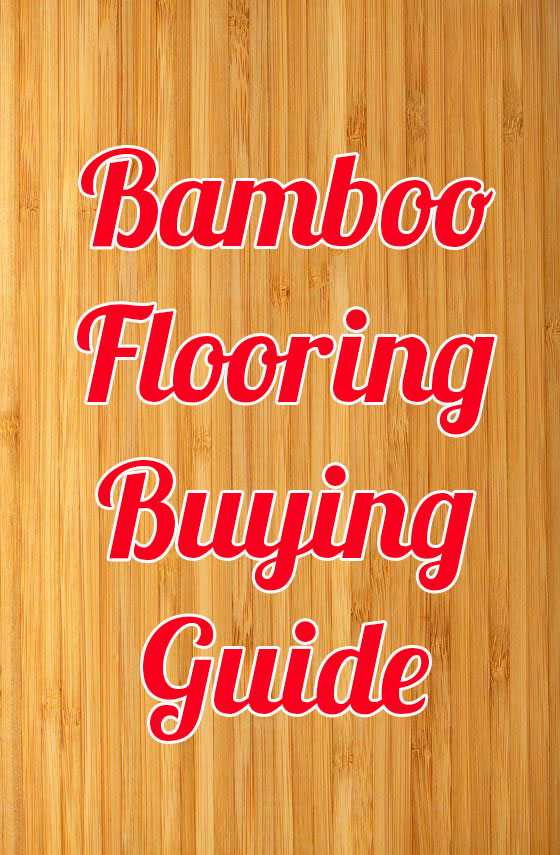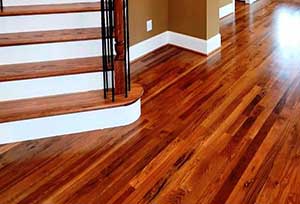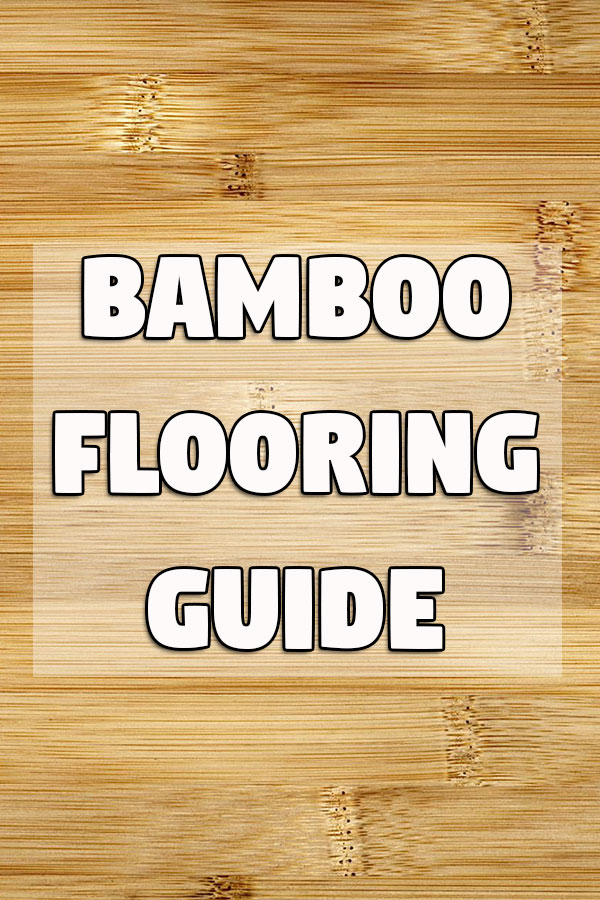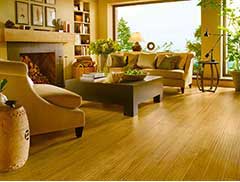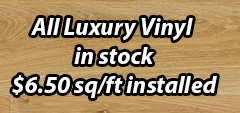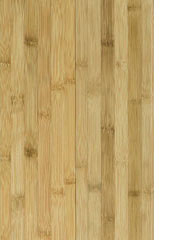 In recent years bamboo flooring has gained considerable popularity. This is due to
In recent years bamboo flooring has gained considerable popularity. This is due to
- it’s reputation as an eco friendly product
- it’s affordable pricing
- advances in production methods which have introduced “strand woven” bamboo – a highly dense product which is even more hard and durable than red oak
- it’s trendy style
Today’s bamboo flooring offers a wide selection ranging from the classic look of bamboo nodes to that which resembles numerous other varieties of wood. Though bamboo is technically classified as a stalk of grass, bamboo hardwood flooring is just like any other type of hardwood flooring. It matches up in every aspect from look and feel to installation, durability and maintenance.
Eco Friendly Bamboo Flooring
Bamboo is considered a sustainable, renewable eco friendly product because it grows much faster than other hardwoods. Most hardwood species take 20 to 50 years to harvest. Bamboo takes only three to five years, and because the plant regenerates new stalks after harvesting it does not require clearing vast tracts of land as with other hard wood species.
Bamboo Flooring Cost
It’s highly productive growth rate makes the bamboo flooring cost substantially lower than other hardwood flooring. Per square foot bamboo wood flooring ranges from $2-$10 and is generally about $1 less than other types of equal grade hardwood.
The very cheap stuff is not highly recommended however. Though bamboo is an eco friendly material, alot of bamboo flooring is produced in China where there is minimal regulation over the production process. Adhesives are used to bind the bamboo together. Lower quality products may use adhesives and finishes which release urea-formaldehyde into the air. Higher quality products will have a certification from a third party like FloorScore or Greenguard. These seals of approval will ensure that the product is safe from emission of VOC’s (volatile organic compounds).
Durability of Bamboo Wood Flooring
You should also avoid going el cheapo if you want to get a long lasting durable product. A decent quality bamboo wood flooring product will come with a quality warranty to back it up. While bamboo flooring products do not come with quality ratings like laminate flooring products do, quality bamboo flooring does come with a full warranty. Many manufacturers offer a lifetime structural warranty with factory finishes warranteed for 25 years minimum. Some products do provide a third party hardness rating as well.
Bamboo is highly durable like many hardwoods, particularly the strand woven bamboo. When properly maintained it can last for decades. There is also what’s called vertical bamboo and horizontal bamboo flooring. These are also as hard as many hardwoods like oak. Strand woven is by far the hardest, about twice as hard as vertical or horizontal bamboo due to it’s production process. Bamboo which is carbonized to make the color darker is less hard than non carbonized bamboo.
Types of Bamboo Flooring
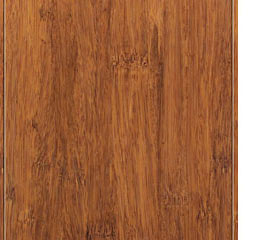 There are three types of bamboo flooring products and any of them are suitable for use anywhere that hardwood is appropriate. The three typres are:
There are three types of bamboo flooring products and any of them are suitable for use anywhere that hardwood is appropriate. The three typres are:
- horizontal grain
- vertical grain
- strand woven
Each of these are manufactured by a different process starting with thin cut strips of bamboo. The three different method of processing the bamboo produces three distinct products, each with a different look. Each process involves binding the bamboo with adhesives before it is milled.
Horizontal Bamboo most reveals the classic look of bamboo. It is prepared with the outer surface of the bamboo facing up and clearly displaying the surface and nodes of the bamboo stalks. It is available with or without stain or carbonized for a darker tone.
Vertical Bamboo is prepared with the cut edge of the bamboo facing up. The nodes are less pronounced and it has an evenly striped appearance. It comes unstained or carbonized.
Strand woven bamboo is milled from a large block of shredded, compressed bamboo strips. It is the most hard, dense, durable and costly type of bamboo flooring.
The above mentioned types of bamboo flooring also come in solid planks or engineered (bamboo attached to a plywood backing) either unfinished or prefinished.
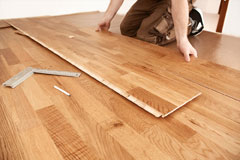 Bamboo Flooring Installation
Bamboo Flooring Installation
Bamboo flooring installation is the same as any hardwood floor. It can be either nailed, stapled or glued to a subfloor. This type of installation is the tightest and has the most solid feel. It is best done by a professional. For DIYers a floating floor is another option where click-lock planks are set down over a felt or foam underlayment. The planks click together without any need of nails, staples or glue. This type of install is doable for most DIYers.
Before the bamboo flooring installation check the manufacturer’s recommendations for acclimating the wood. It may need to sit in the room for a period before installation to adjust to the climate. This will ensure a tight fitting installation.
Also before installation is a good time to consider adding a radiant heating system. Most bamboo works well with radiant heating. Check the bamboo manufacturer’s specs for temperature limits. Radiant heating can be installed with any floating floor.
Finishing
Bamboo flooring can be installed unfinished or with a factory finish. Factory finishes last longer. They are made with multiple layers of aluminum oxide with a clear coat on top. The drawback is the upfront cost and cost to repair if it gets damaged and needs professional refinishing. In some cases you can just replace a few boards if you have extras.
The advantage of applying the finish during installation will be lower cost, and it will be easier to repair or refinish. Though generally it would need refinishing more often than a factory finish.
An unfinished floor has the option of having a flatter surface since it can be sanded before finishing.
As with any hardwood you have several choices for adding a finish. With finishes the longer it lasts the harder it is to repair and vice versa; and so the following finish options are listed from the easiest to repair to the longest lasting.
- drying oils such as linseed or pure tung oil
- oil-varnish mixes like Danish oil
- lacquer
- water based finish
- wiping varnish : polyurethane combined with mineral spirits
- polyurethane
One great thing about bamboo flooring as with any hardwood floor is when the surface is worn out you can sand and refinish the floor to make it like new again.
Maintenance
As with any hardwood floor there are a few measures to maintain your floor in long lasting good condition. Sweep, vacuum and damp mop regularly to keep the floor free of abrasive dirt. Use floor rugs or mats in high traffic areas. Avoid high heels and sharp pet claws on the floor. Put felt pads on furniture feet. Avoid water damage by cleaning spills promptly. See our hardwood flooring maintenance guide for more maintenance details.
For professional bamboo flooring installation contact us for a free estimate. We also offer radiant heating installation.
